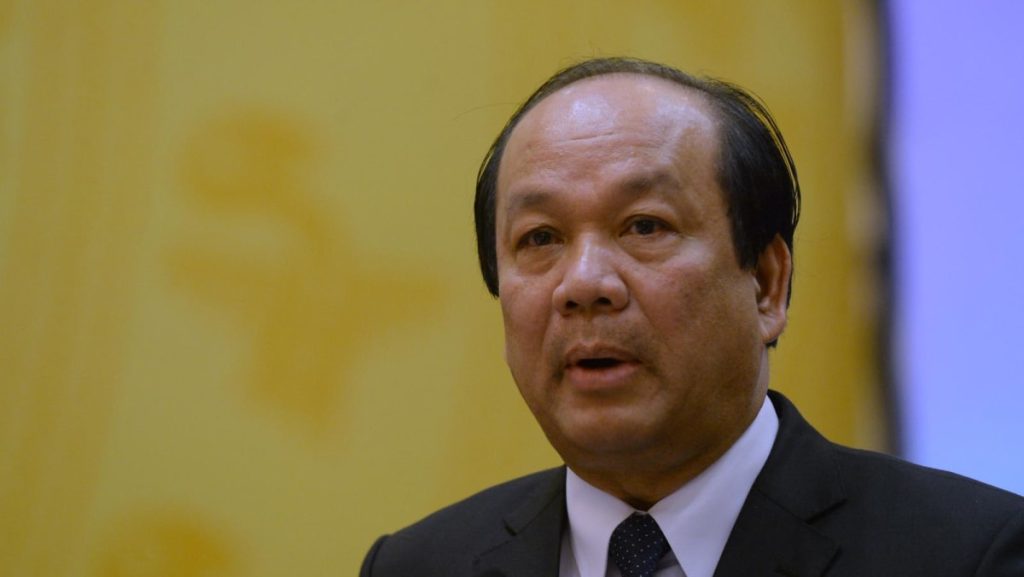Paragraph 1: The Trial and the Anti-Corruption Campaign
On January 16, 2024, a Hanoi court witnessed the commencement of a high-profile corruption trial involving Mai Tien Dung, a former spokesperson for the Vietnamese government. Dung, who held the position between 2016 and 2021, stands accused of "abusing power" and accepting bribes in connection with a substantial US$1 billion eco-resort and urban development project. This trial represents a significant development in Vietnam’s ongoing and extensive anti-corruption campaign, often referred to as the "blazing furnace," which has ensnared thousands of individuals, including high-ranking government officials and prominent business figures. This campaign underscores the Vietnamese government’s commitment to addressing corruption within its ranks and promoting greater transparency and accountability within the public sector.
Paragraph 2: The Dai Ninh Real Estate Project and Co-Defendants
The corruption charges against Dung and eight other former central and provincial government officials revolve around the Dai Ninh real estate project in Lam Dong province. The project, initially envisioned as a large-scale eco-resort and urban development, has become embroiled in allegations of land rights violations and bribery. Dung’s co-defendants face similar charges, highlighting the widespread nature of the alleged corruption surrounding this particular project. The trial serves as a focal point for the government’s efforts to expose and prosecute individuals involved in corrupt practices related to land acquisition and development, a sector particularly vulnerable to such abuses.
Paragraph 3: The Accusations of Bribery and Cover-up
The prosecution alleges that Dung accepted a bribe of 200 million dong (approximately US$8,250 at the current exchange rate) in connection with the Dai Ninh project. Furthermore, businessman Nguyen Cao Tri faces accusations of offering bribes exceeding seven billion dong (approximately US$275,000) to officials within the government inspectorate and senior officials in Lam Dong province. The alleged cover-up orchestrated by the accused officials resulted in the state’s inability to reclaim 3,600 hectares of land. This loss not only represents significant economic damage but also facilitated 24 instances of illegal forest soil destruction, highlighting the environmental consequences of corruption.
Paragraph 4: Dung’s Admission and Plea for Leniency
During the court proceedings, Dung admitted to wrongdoing and accepted responsibility for his actions. He expressed remorse and acknowledged the negative impact of his behavior, while also pleading for leniency from the court. His admission, reported by state-controlled news site VNExpress, suggests a potential strategy to secure a less severe sentence. While acknowledging guilt, Dung’s plea for leniency may also reflect the high-stakes nature of the trial and the potential consequences he faces.
Paragraph 5: The Broader Context of Vietnam’s Anti-Corruption Drive
The trial of Mai Tien Dung and his co-defendants unfolds against the backdrop of Vietnam’s intensified anti-corruption campaign. This campaign, initiated in recent years, has targeted individuals across various sectors, including government, business, and state-owned enterprises. The "blazing furnace" approach, as it has been dubbed, signifies the government’s determination to root out corruption at all levels and restore public trust. The high-profile nature of this particular trial, involving a former government spokesperson, serves as a strong message about the government’s commitment to holding even high-ranking officials accountable for their actions.
Paragraph 6: The Implications and Future of the Anti-Corruption Campaign
The outcome of this trial will have significant implications for the future trajectory of Vietnam’s anti-corruption efforts. A conviction would reinforce the government’s resolve and signal that no one is immune from prosecution, regardless of their previous position or influence. However, the trial also raises important questions about the systemic nature of corruption within Vietnam and the challenges of addressing its root causes. The ongoing campaign requires sustained effort and political will to ensure its long-term effectiveness and prevent future instances of corruption. The trial’s outcome will be closely watched by both domestic and international observers as a barometer of Vietnam’s commitment to tackling this pervasive issue.

